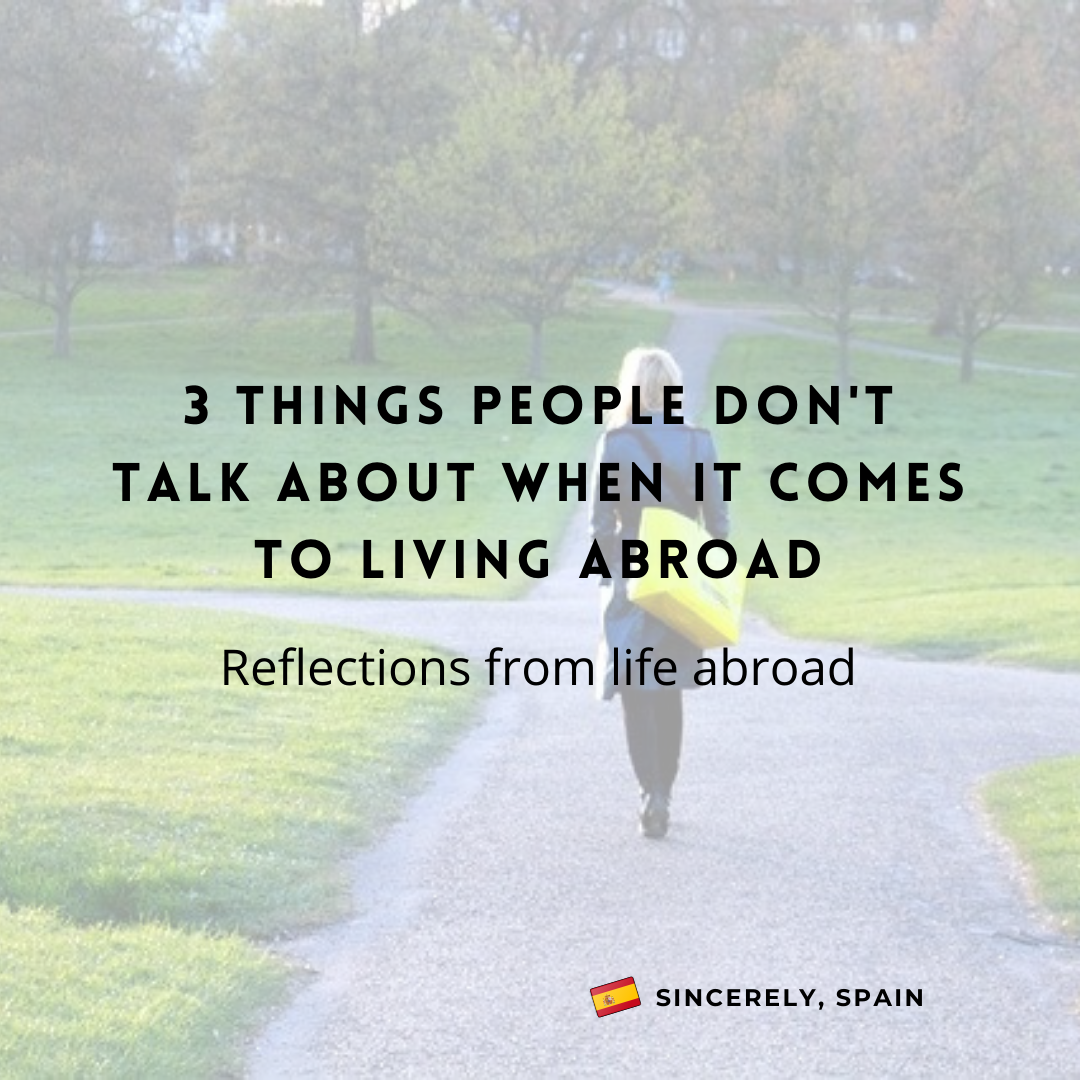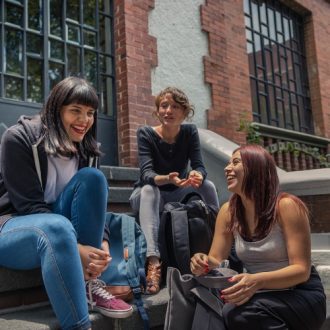
3 Things People Don’t Talk About When it Comes to Living Abroad
Dear Sam,
Let’s talk about living abroad.
What you see from someone’s Instagram or Facebook feed of their life abroad might seem amazing and beautiful. What a loved one tells you about their experience will probably seem exotic and different. However, these filtered versions of what abroad experiences are like are exactly that—filtered. What you will see is what people want you to see and even if they are being candid about their time abroad while talking with you, you will probably hear about the extremes of daily life. When we share about our experiences, rarely do we share about the mundane, the things that happen regularly without much impact.
In addition, you might find it isn’t easy for people to share about their not-so-positive experiences. We are expected to live our best lives while abroad, so, a lot of the time we find that people focus on sharing the glamorous side of things. We promise you that living abroad is not always like a fairytale and that if you decide that you want to live abroad, there are three things that you should know, that people don’t usually talk about.
It is hard
We’ve talked about this before, but not so explicitly. It is hard to live abroad because no matter how beautiful the experience is, there are always ups and downs and you don’t usually have the support system that you would have back home. Some days (or weeks or months) will be easier than others but it is unlikely that you don’t have any time when you are feeling frustrated, upset, or just plain sick of the situation. More specifically, we think that there are three areas that you might not expect it to be hard:
Adapting:
Adapting to a new country, a new language, and a new culture is one thing. If you live abroad, however, you also have to adapt to a life that is different to what you were used to before. This means that simple things like going to visit your grandmother on the weekend have to transform into video calls or finding your favorite peanut butter at the store changes to accepting whatever you can find. While these may seem like simple examples, on your hard days you will miss just how easy it was to go about your daily life as you did it before.
Adapting is a process and will be full of ups and downs. Some days you will love the experience and the challenges. Other days, it might just seem like too much to handle. How you find your balance with the situation will determine the beginning of your experience living abroad. And despite how good things are, some days will just be hard so be patient with yourself and accept where you are today.
Creating a Community:
Notice we say creating a community here because the challenge is you probably won’t just find one. Community, whether big or small, is essential to feeling comfortable in your new home abroad. However, finding people who match what you are looking for isn’t always easy. We have lots of articles where we dive into the art of making friends abroad but it can be more difficult than just finding people who you like to meet up with too.
For example, Claudia is currently mentoring a woman who just moved to Finland to be with her partner and, while she has a job, friends, a church, and a community in general, she is desperately missing talking with people who are related to her academic field of expertise. She has a place to fit in and still she wishes for a group of people to talk about a more focused range of topics. In this case, she has a large part of the community she is looking for and is still trying to find what she is missing.
Understanding Your Own Experience:

Perhaps one of the hardest things of all is trying to understand your overall experience, both during and after it happens. We have this idea that everything we do normally fits inside the expectations that we have of the world. Living abroad will teach you that sometimes you will go far outside this scope of knowledge and expectations. When you experience something outside what you are used to, it can feel extremely exciting (both positively and negatively). It can also feel hard to process and share with others in your life.
In addition, it might be the smallest things that end up having the biggest impact on you. For example, the changing of the food schedule or the types of foods eaten is something that seems like a small thing that can feel like a big deal. And a lot of times we just react without contemplating or thinking about things, which can leave us confused and others asking questions we cannot answer. Understanding why you have a reaction to something that can only happen with time and processing of experiences, something that can be very challenging.
Some of the most random things will be the most impactful
In addition to the things that are hard, you will find that some of the most random things will be the ones that have the most impact on you, the ones you find the most beautiful. Going back to the example of the food schedule, you might find it frustrating at first, and then bearable as you get used to it, and then something essential as part of your life. Now that Dani has adapted to the Spanish hours of eating, she is attached to when you eat certain meals, something that you might not expect when you first are adapting to these differences. Sure she can adapt when necessary but if you ask her what she prefers, there are a lot of things she loves about the eating schedule in Spain.
We also believe that small opportunities can make an incredible impression. Whether it is deciding to spend Christmas with friends instead of getting in some travel or booking a last minute trip that came across your path, we don’t always know what will strike us as the most wonderful. That is why it is really important, in our opinion, to leave yourself open to what appears to you and to enjoy the moments when you can. Only looking back and understanding your experiences will you be able to see where some of the most random things have impacted you.
If you let it, it will change you
Okay, so this one might be something that people talk about, but if you allow the experience to settle in and connect to the person that you are, it will change you. We see these impacts in the way we perceive the world and think about life, in the way we carry out everyday activities, and how we interact with others. We are not the same people who moved abroad all those years ago and this has its positive and negative sides too.
Starting with the negative, you sometimes notice that you have changed without being conscious of it or wanting to. If this is the case, it is possible that the change is not something that you like and you would rather not have changed. You might want to change back to who you were before. Sometimes that is possible and other times not, but the change will help you see what you like (and like less) about the person you have become.
In addition, if you have changed dramatically and decide to go back home or move somewhere new, you will have to start the process over (yes, even going home—you will probably face reverse culture shock). We include this in the negative side of things because the overall experience can feel frustrating and demotivating. In fact, you might not even notice you’ve changed until you have to go back and readapt to the culture you were living in before.

Still, we believe that change while living abroad is mostly positive. It signals your growth as a person as you learn to face, deal with, embrace, and/or overcome the situations that have been placed in your path. This doesn’t mean that all positive change is painless and easy but that it is an experience worth having. When this kind of change happens, you will often be pleasantly surprised to see how much of an impact the experience has had on you as a person.
What are the things that most surprised you about deciding to live abroad that you wished people talked more about?
Sincerely,
Spain




